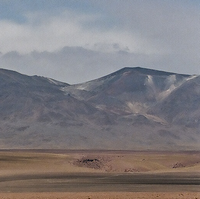With growth in Asia increasing the long-term demand for oil, the quest for energy conservation has increasingly focused attention on lithium, the key resource needed for the manufacture of energy-efficient ion batteries powering hybrid cars. Demand for lithium carbonate doubled from 2003 to 2007, and a report by Credit Suisse states (.pdf) that the market for lithium-ion batteries may expand to 14 times its 2009 size by 2030.
Lithium is typically recovered from high-altitude desert areas, chiefly in the Andes Mountains, with roughly 80 percent of the world's known lithium reserves found in Argentina, Bolivia, or Chile. Alone, the salt flats of southwestern Bolivia contain more than half of the world's recoverable supplies, making it "the Saudi Arabia of lithium." But after two decades of piquing foreign interest in Bolivia's reserves, the country's natural resource policies, regional posture and poor infrastructure have caused investment in lithium recovery to increasingly favor Chile and Argentina.
Shortly after riding a wave of indigenous populism to office in 2005, Bolivia's President Evo Morales made good on his vow to re-appropriate the country's natural resources from foreign commercial interests by nationalizing Bolivia's oil and natural gas industries. Morales views lithium, too, as a valuable resource that can help transform Bolivia into a modern society, which explains his insistence that, "The state will never lose sovereignty when it comes to lithium." Comibol, the state agency that oversees mining projects, is busy putting Morales' plan for lithium mining into action, with the goal being to eventually treat foreign industries as direct clients, thereby cutting out the extraction middlemen. This desire to keep foreigners out of the country's salt flats is widely supported in Bolivia, especially among indigenous groups and the rural poor.

